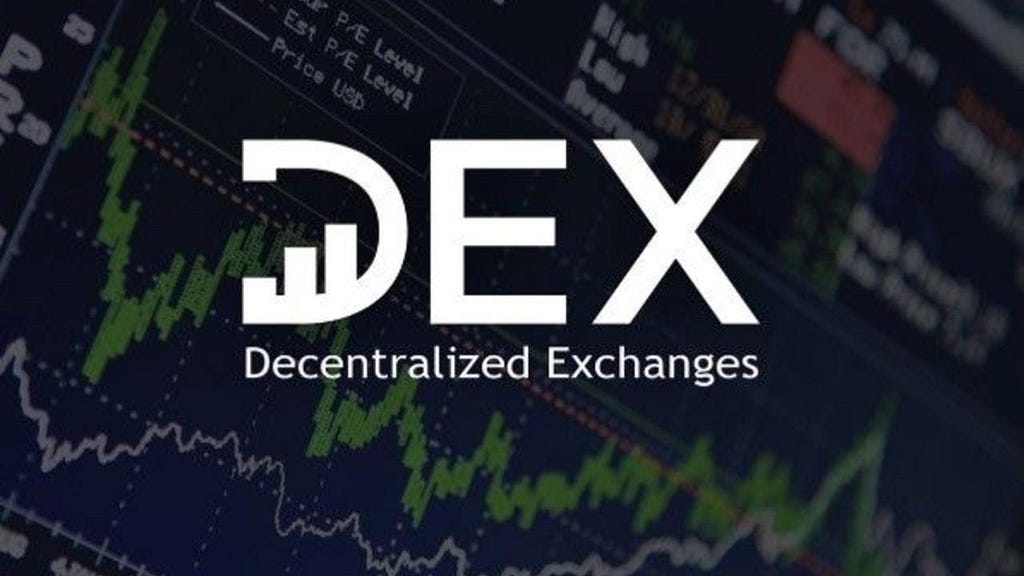
Decentralized exchanges (DEXs) are reshaping the cryptocurrency trading landscape by offering a more secure, transparent, and user-controlled environment for trading digital assets. As businesses and individuals increasingly seek alternatives to centralized exchanges, understanding DEXs becomes essential for anyone involved in Ethereum development or trading.
What is a Decentralized Exchange (DEX)?
A decentralized exchange is a platform that enables users to trade cryptocurrencies directly with one another without the need for an intermediary. Unlike centralized exchanges (CEXs), where the exchange itself holds users’ funds and facilitates transactions, DEXs operate on blockchain technology, primarily using smart contracts. This means that users retain control over their assets at all times, significantly reducing the risk of theft or loss due to exchange failures or hacks.
How DEXs Operate
The functioning of DEXs is primarily based on smart contracts — self-executing contracts with the terms of the agreement directly written into code. When a user wants to trade cryptocurrencies on a DEX, they do so directly from their digital wallets. This process eliminates the need to transfer funds to the exchange, thus enhancing security and privacy for users.
Types of DEXs
There are several types of decentralized exchanges, each with unique features:
- Automated Market Makers (AMMs): These platforms utilize algorithms to facilitate trading by creating liquidity pools. Users can trade against these pools instead of directly with other traders. Popular examples include Uniswap and SushiSwap.
- Order Book DEXs: These exchanges maintain a record of buy and sell orders, similar to traditional stock exchanges. They allow for more complex trading strategies but may require higher throughput capabilities to function effectively.
- DEX Aggregators: These platforms aggregate liquidity from multiple DEXs to provide users with the best possible prices and minimal slippage during trades.
Advantages of DEXs
The rise of DEXs can be attributed to several key advantages they offer over centralized exchanges:
- Self-Custody: Users maintain control over their private keys and funds, reducing the risk associated with centralized custody.
- Transparency: Transactions on DEXs are recorded on public blockchains, allowing anyone to audit them. This transparency builds trust among users.
- Privacy: DEXs typically do not require extensive personal information or KYC processes, appealing to privacy-conscious traders.
- Access to New Assets: DEXs often list new tokens immediately upon launch, providing early access to potentially lucrative investment opportunities.
- Lower Fees: Without intermediaries, transaction costs on DEXs can be lower than those on centralized platforms.
Challenges Faced by DEXs
While DEXs present numerous benefits, they also face challenges that can affect user experience:
- Liquidity Issues: Some DEXs may struggle with liquidity compared to larger centralized platforms, which can lead to slippage during trades.
- Complexity: For newcomers to cryptocurrency trading, navigating a DEX can be more complicated than using a CEX due to the lack of user-friendly interfaces.
- Smart Contract Risks: Bugs or vulnerabilities in smart contracts can expose users to risks. Regular audits and updates are essential for maintaining security.
Must-Have DEX Features
Peer-to-Peer Trading
- DEXs facilitate direct transactions between users without intermediaries. This peer-to-peer model enhances security and reduces the risk of fraud, as users maintain control over their assets throughout the trading process.
Non-Custodial Wallets
- Users retain full control of their private keys and funds, which minimizes the risk associated with centralized custody. Non-custodial trading allows users to execute trades directly from their wallets without needing to deposit funds into the exchange.
Smart Contracts
- Smart contracts automate trade execution and ensure that transactions are executed as programmed without the need for third-party intervention. This feature enhances transparency and trust in the trading process.
Decentralized Order Book
- Unlike centralized exchanges, DEXs utilize a decentralized order book that enables users to see real-time buy and sell orders. This feature helps maintain market integrity and provides users with a clear view of available liquidity.
Liquidity Pools
- Liquidity is crucial for any exchange. DEXs often implement liquidity pools where users can contribute assets to facilitate trading. In return, liquidity providers earn a portion of the transaction fees generated by trades within the pool.
Token Swapping Mechanism
- A robust token swapping mechanism allows users to exchange one cryptocurrency for another seamlessly. This feature is typically powered by liquidity pools and smart contracts, ensuring efficient transactions.
User-Friendly Interface (UI/UX)
- A well-designed interface is essential for attracting and retaining users. The UI/UX should be intuitive, making it easy for both novice and experienced traders to navigate the platform and execute trades.
Privacy Features
- Many users prefer anonymity while trading. DEXs often have minimal Know Your Customer (KYC) requirements, allowing users to trade without disclosing personal information, thus enhancing privacy.
Censorship Resistance
- Operating on decentralized networks means that DEXs are less susceptible to government or regulatory shutdowns. This feature ensures unrestricted access to trading services for users worldwide.
Low Transaction Fees
- DEXs generally have lower operational costs compared to centralized exchanges, allowing them to offer reduced trading fees. This attracts more users seeking cost-effective trading solutions.
Cross-Chain Compatibility
- As the blockchain ecosystem evolves, cross-chain compatibility becomes increasingly important. DEXs that support multiple blockchains can provide users with access to a wider range of tokens and assets.
Security Protocols
- Implementing robust security measures is vital for protecting user funds from potential threats. Features like two-factor authentication (2FA), regular audits of smart contracts, and secure wallet integrations help enhance overall security.
Top Decentralized Exchanges (DEXs)
Uniswap
- Overview: Uniswap is one of the most recognized DEXs, known for pioneering the automated market maker (AMM) model. It allows users to swap any ERC-20 token directly through liquidity pools.
- Key Features:Supports over 10,000 ERC-20 tokens.
- Daily Trading Volume: Over $2 billion.
PancakeSwap
- Overview: As the leading DEX on Binance Smart Chain (BSC), PancakeSwap offers low transaction fees and fast execution times, making it a popular choice for BEP-20 token swaps.
- Key Features:Supports around 5,000 BEP-20 tokens.
- Daily Trading Volume: Approximately $1.5 billion.
SushiSwap
- Overview: SushiSwap is a community-driven DEX that provides a comprehensive DeFi ecosystem beyond simple token swaps, including yield farming and lending services.
- Key Features:Supports over 1,000 tokens.
- Daily Trading Volume: Around $700 million.
The Role of Ethereum in Decentralized Exchanges
Ethereum has become the leading platform for decentralized exchanges due to its robust smart contract capabilities. Many popular DEXs are built on Ethereum’s blockchain, leveraging its extensive developer community and established infrastructure. This has led to innovations in trading mechanisms and increased adoption among users seeking decentralized trading solutions.
The Future of Trading with DEXs
The recent turmoil in centralized exchanges has highlighted the need for more reliable trading options. High-profile incidents such as the collapse of FTX have driven traders towards decentralized platforms, where they can trade without fear of losing access to their funds due to third-party mismanagement.
As more individuals and businesses recognize the advantages of decentralized trading, the adoption of DEXs is likely to continue growing. Innovations such as layer 2 solutions aim to improve scalability and reduce transaction costs further, making DEXs even more appealing for everyday traders.
Conclusion
Decentralized exchanges represent a significant shift in how individuals engage with cryptocurrency markets. By eliminating intermediaries and providing users with greater control over their assets, DEXs are paving the way for a more secure and inclusive trading environment.
For businesses looking to develop or enhance their presence in this rapidly evolving market, partnering with an experienced Ethereum development company can provide valuable insights and technical expertise. If you’re interested in building your own decentralized exchange or exploring other blockchain solutions, consider reaching out to Codezeros, a leading DEX development company that specializes in creating tailored solutions for your needs.
In this dynamic landscape, staying informed about developments in decentralized finance will be crucial for businesses seeking success in the future of trading.








